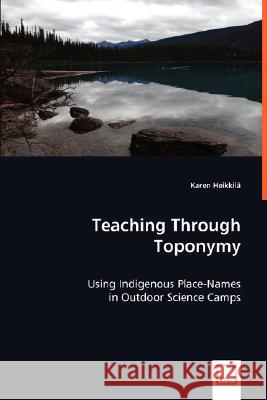Teaching Through Toponymy » książka
Teaching Through Toponymy
ISBN-13: 9783639009101 / Angielski / Miękka / 2008 / 144 str.
Teaching Through Toponymy considers the versatility of indigenous place-names in educating about land, language and (oral) history. Based on collaborative research with Tl'azt'en Nation, Karen Heikkila explores the meaning of place and belonging to Tl'azt'enne through Dakelh place-names. From the premise that land is an enduring facet of indigenousness, she argues that indigenous place-names have a role in inculcating a sense of place as well as a sense of self. She proposes that a personal connection with the land is vital for full appreciation of ancestral teachings, including Traditional Ecological Knowledge, and discusses the significance of indigenous toponymy in imparting indigenous knowledge and language in the context of the land. Included in the monograph are guidelines for incorporating Dakelh place-names in the Tl'azt'en Nation Yunk'ut Whe Ts'o Dul'eh science camp programme."
Teaching Through Toponymy considers the versatility of indigenous place-names in educating about land, language and (oral) history. Based on collaborative research with Tlazten Nation, Karen Heikkilä explores the meaning of place and belonging to Tlaztenne through Dakelh place-names. From the premise that land is an enduring facet of indigenousness, she argues that indigenous place-names have a role in inculcating a sense of place as well as a sense of self. She proposes that a personal connection with the land is vital for full appreciation of ancestral teachings, including Traditional Ecological Knowledge, and discusses the significance of indigenous toponymy in imparting indigenous knowledge and language in the context of the land. Included in the monograph are guidelines for incorporating Dakelh place-names in the Tlazten Nation Yunkut Whe Tso Duleh science camp programme.











